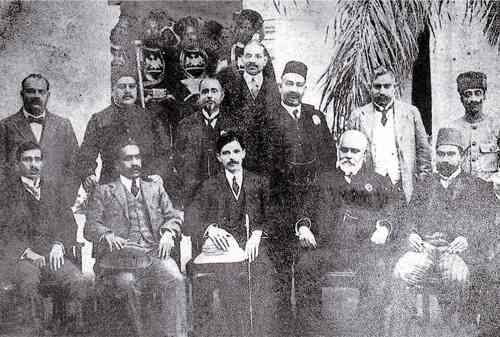The Lucknow Pact was an agreement between the Indian National Congress and the Muslim League. This agreement was reached at a joint session of both parties held in Lucknow in December 1916.
Through the pact, the two parties agreed to allow representation to religious minorities in the provincial legislature. The Muslim League leaders agreed to join the Congress movement asking for Indian autonomy.
Mahajan led the Congress while framing the deal, and A.K. Fazlul Haq (who was part of both Congress and the Muslim League in 1916) and Mahatma Gandhi also participated in this event.
Background of Lucknow Pact
To satisfy the Indians and under immense pressure from Indian masses, the British had declared that they will be considering a series of proposals that would lead to
- at least half of the members of the Executive Council is elected, and
- the Legislative Council having a majority of elected members needed.
This was supported by both the Congress and the Muslim League. Both had understood that for further grants to be gained, greater cooperation was required.
Agreements by the Congress
The Congress agreed:
- to leave electorates for Muslims in electing representatives to the Imperial and Provincial Legislative Councils. Although the Muslims were given this right in the Indian Council Act of 1909, the Indian National Congress opposed it.
- to the idea of one-third seats for the Muslims in the Councils even though the Muslim population represented less than a third.
- no act affecting a community should be passed unless three-quarters of that community’s members on the council supported it.
After the signing of this pact, the rivalry between moderates and extremists was decreased to some extent. There was a significant change in their relation.
Demands presented to the British
Both parties presented some common demands to the British. They demanded:
- Increase in the number of elected seats in the councils
- The British Government should accept any law/motion passed by large majorities in the councils
- Protection of the minorities in the provinces.
- To grant autonomy to all the provinces
- The executive should be separated from the judiciary
- At least half of the members of the Executive Council is elected, the Legislative council having a majority of elected members
Importance of Lucknow Pact
The Lucknow Pact was a light of hope to Hindu–Muslim unity. This was the fourth time when the Hindus and Muslims had made a joint demand for political reform to the British. It led to a growing belief in British India that Home Rule (self-government) was a real possibility.
The pact also noted the high-water mark of Hindu-Muslim unity. It confirmed friendly relations between the Muslim League and the Indian National Congress.
Before the pact, both parties were considered rivals who opposed each other and acted in their interests. However, the pact brought a change in that view.
The Lucknow Pact also helped in building cordial relationships between the two prominent groups within the Indian National Congress – the ‘extremist‘ faction led by the Lal Bal Pal trio (Lala Lajpat Rai, Bal Gangadhar Tilak, and Bipin Chandra Pal), and the ‘moderate‘ faction led by Gopal Krishna Gokhale until his death in 1915 and later represented by Gandhi.
Though Jinnah supported a separate nation for the Muslims 20 years later, in 1916 he was a member of both Congress and Muslim League, was an associate of Tilak, and recognized as ‘ambassador of Hindu-Muslim Unity’.

